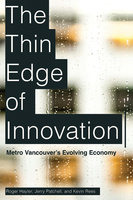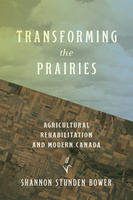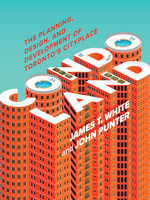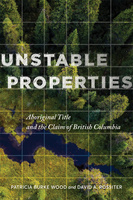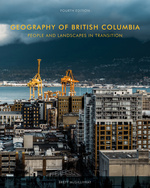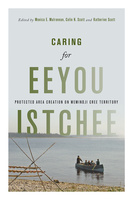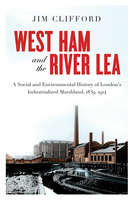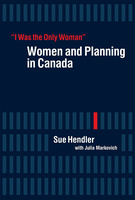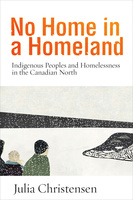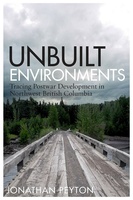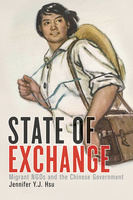The Thin Edge of Innovation
Metro Vancouver’s Evolving Economy
The Thin Edge of Innovation charts the origins, potential, and pitfalls of Metro Vancouver’s entrepreneur-led innovation economy, including the tremendous growth of high-tech, apparel, and consumer-oriented life-style businesses in the city.
Transforming the Prairies
Agricultural Rehabilitation and Modern Canada
Transforming the Prairies critically reassesses Canada’s Prairie Farm Rehabilitation Administration in light of its involvement in ecological changes and its role in consolidating colonialism and racism.
Condoland
The Planning, Design, and Development of Toronto’s CityPlace
In an era of frantic vertical urbanization known as “condoism,” Condoland explores the planning and design of Toronto’s CityPlace, one of North America’s largest residential development projects – and reveals what can happen when the real estate industry comes to dominate city planning.
Unstable Properties
Aboriginal Title and the Claim of British Columbia
Unstable Properties convincingly argues that the so-called land question in British Columbia cannot be resolved without understanding the fundamentally unstable ideological foundation of land and title arrangements on which the province rests.
Making Muskoka
Tourism, Rural Identity, and Sustainability, 1870–1920
Making Muskoka traces the first decades of Muskoka’s transformation from Indigenous homeland to a part-time playground for tourists and cottagers and uncovers the consequences for those who lived there year-round.
The Heart of Toronto
Corporate Power, Civic Activism, and the Remaking of Downtown Yonge Street
From the sidewalk to City Hall, in the corporate boardroom, and around the kitchen table, The Heart of Toronto traces the power dynamics and projects that have transformed downtown Toronto.
Making and Breaking Settler Space
Five Centuries of Colonization in North America
Making and Breaking Settler Space reveals decolonization opportunities for Indigenous and settler people alike through an exploration of how power and space are organized under settler colonialism.
The Government of Natural Resources
Science, Territory, and State Power in Quebec, 1867–1939
The Government of Natural Resources is a revealing look at how science can extend state power through territorial and environmental transformations.
Quietly Shrinking Cities
Canadian Urban Population Loss in an Age of Growth
The first major study of its kind in Canada, Quietly Shrinking Cities examines the conceptual and empirical evolution of Canadian urban population loss.
A Bounded Land
Reflections on Settler Colonialism in Canada
In this beautifully crafted and written volume, Canada’s preeminent historical geographer traces how Canada’s geographical limitations have shaped the nature of its settler societies – from first contacts, to dispossession, to our current age of reconciliation.
Digital Lives in the Global City
Contesting Infrastructures
Digital Lives in the Global City asks how digital technologies are remaking urban life around the world, from migrant work in Singapore to digital debt in Toronto, illegal buildings in Mumbai, and targeted policing in New York.
Geography of British Columbia, Fourth Edition
People and Landscapes in Transition
This extensively revised edition of Geography of British Columbia teaches students how to think like geographers as it takes them on a journey from the origins of the region’s diverse and unique landscapes to its more recent history as a province being reshaped by the forces of globalization.
Changing Neighbourhoods
Social and Spatial Polarization in Canadian Cities
Changing Neighbourhoods offers revealing insights into the way that Canadian cities have grown increasingly unequal and polarized since 1980, identifying the causal factors driving neighbourhood change and their troubling implications.
Caring for Eeyou Istchee
Protected Area Creation on Wemindji Cree Territory
In Caring for Eeyou Istchee, Indigenous and non-Indigenous partners reveal how protected area creation presents a powerful vehicle for Indigenous stewardship, biological conservation, and cultural heritage protection.
The Nature of Canada
These captivating reflections on the history of our environment and ourselves will make you think differently not only about Canada’s past but also about our future.
West Ham and the River Lea
A Social and Environmental History of London’s Industrialized Marshland, 1839–1914
This original account of industrial London’s expansion into West Ham’s suburban marshlands highlights how pollution, poverty, and water shortages fuelled social democracy in Greater London.
“I Was the Only Woman”
Women and Planning in Canada
A compelling new perspective on Canada’s planning history that offers a counter-narrative to the “official” story of the profession, one that has generally overlooked the contributions of women and the Community Planning Association of Canada.
No Home in a Homeland
Indigenous Peoples and Homelessness in the Canadian North
Through personal accounts and analysis of historical trends, No Home in the Homeland documents the spread of homelessness in the North, what it reveals about colonialism and its legacies, and the limitations of existing policies and programs.
Unbuilt Environments
Tracing Postwar Development in Northwest British Columbia
This book looks at the long-term social and environmental effects of imagined, abandoned, and failed resource-development schemes in northwest British Columbia.
State of Exchange
Migrant NGOs and the Chinese Government
This exploration of the interactive relationship between Chinese NGOs and the Chinese state provides fresh insights into how the Chinese government operates and why it needs non-governmental organizations to survive.

